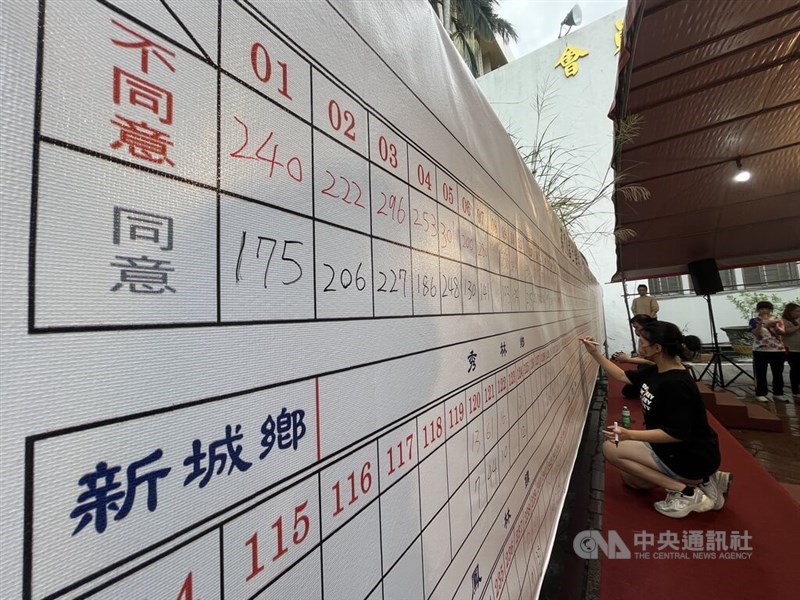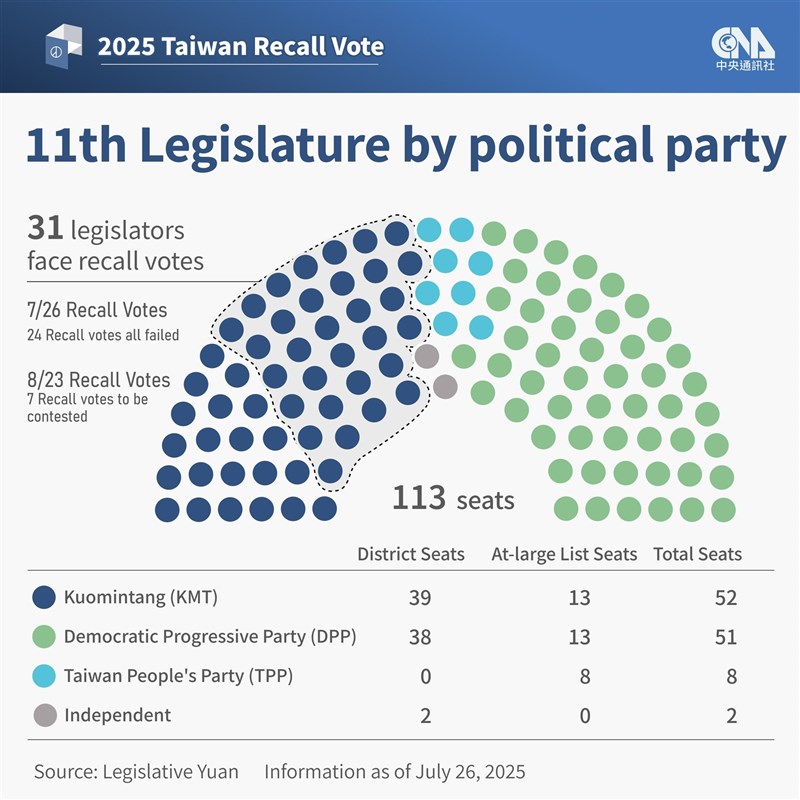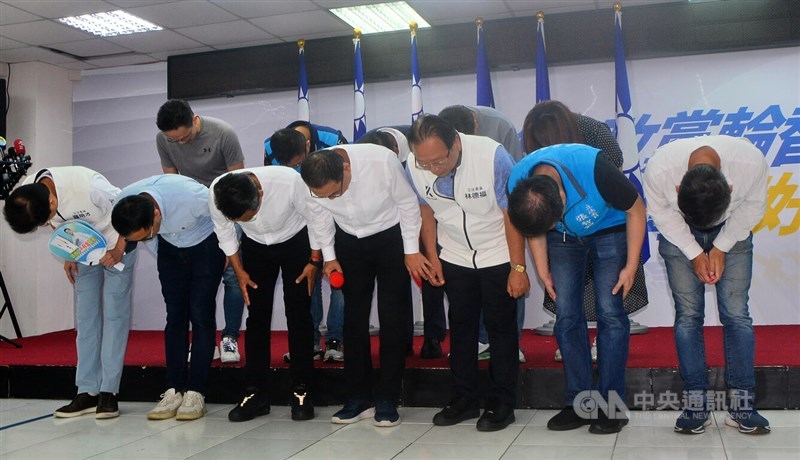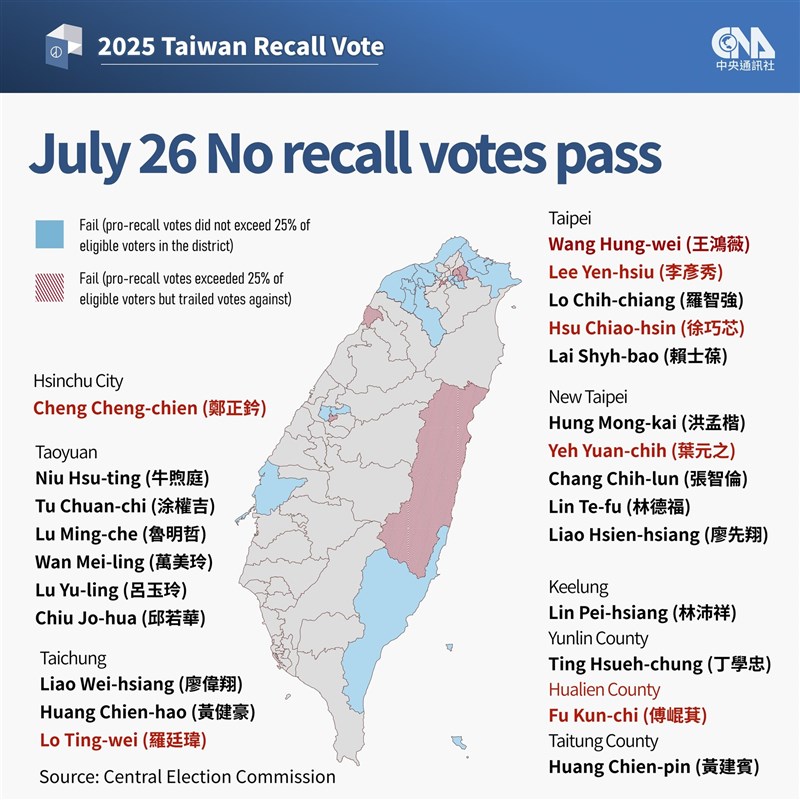
Taipei, July 26 (CNA) The failure of the mass recall campaign targeting Kuomintang (KMT) lawmakers was the result of strong opposition mobilization in blue-leaning districts and the campaign's eventual framing as a partisan showdown, scholars said Saturday.
The recall movement targeted 24 KMT lawmakers and suspended Hsinchu Mayor Kao Hung-an (高虹安), a former member of the opposition Taiwan People's Party (TPP). Despite widespread mobilization, none of the officials were removed.
Chen Wen-chia (陳文甲), an adjunct professor at National Chengchi University, said the DPP and civic groups pushed a "resist China, protect Taiwan" message, but many voters were skeptical of the strategy.

Moderate and undecided voters appeared to vote cautiously, flipping some expected outcomes, while the KMT, in coordination with the TPP, solidified its base and overcame recall pressure through effective party mobilization, Chen said.
Wang Hung-jen (王宏仁), a political science professor at National Cheng Kung University, said party mobilization successfully turned "nonconfidence in unfit lawmakers" into a party battle, noting the DPP's involvement came relatively late and that most recall targets were in KMT-friendly regions.
Hsueh Hua-yuan (薛化元), president of the Taiwan Association of University Professors, noted that economic issues like the NT$10,000 (US$340) cash handout had a greater public impact than constitutional concerns, favoring KMT turnout when overall voting rates passed 50 percent.

Soochow University law professor Chang Chia-yin (張嘉尹) said the recall campaign's civic momentum had a double effect: while energizing its base, it also triggered a strong counter-mobilization among blue camp voters.
Chang also pointed out that social media created echo chambers. On platforms like Threads, users mostly saw content that aligned with their views, limiting cross-group dialogue and possibly contributing to the recall campaign's surprise losses.
Despite the defeat, scholars agreed that the movement had democratic value. Hsueh said the process enhanced public understanding of democratic institutions and highlighted the active role of female volunteers -- unusual in past political actions.

Chang added that this was Taiwan's first large-scale citizen-led effort to push 31 lawmakers into third-stage recall proceedings, despite heavy criticism throughout.
"This is part of Taiwan's democratic growth. The impact may take time, but future candidates won't be able to ignore this force," Chang said.
- Society
2 hospitalized after man self-immolates at New Taipei gas station
01/09/2026 09:40 PM - Sports
Lin An-ko excited to face Taiwanese stars as Saitama Seibu Lions player
01/09/2026 09:31 PM - Business
Taiwan's exports, imports, trade surplus smash records in 2025
01/09/2026 09:23 PM - Politics
Taiwan-Israel cooperation on technology 'inevitable': Official
01/09/2026 08:36 PM - Society
Holger Chen indicted for 'decapitating' president remarks on YouTube
01/09/2026 07:33 PM